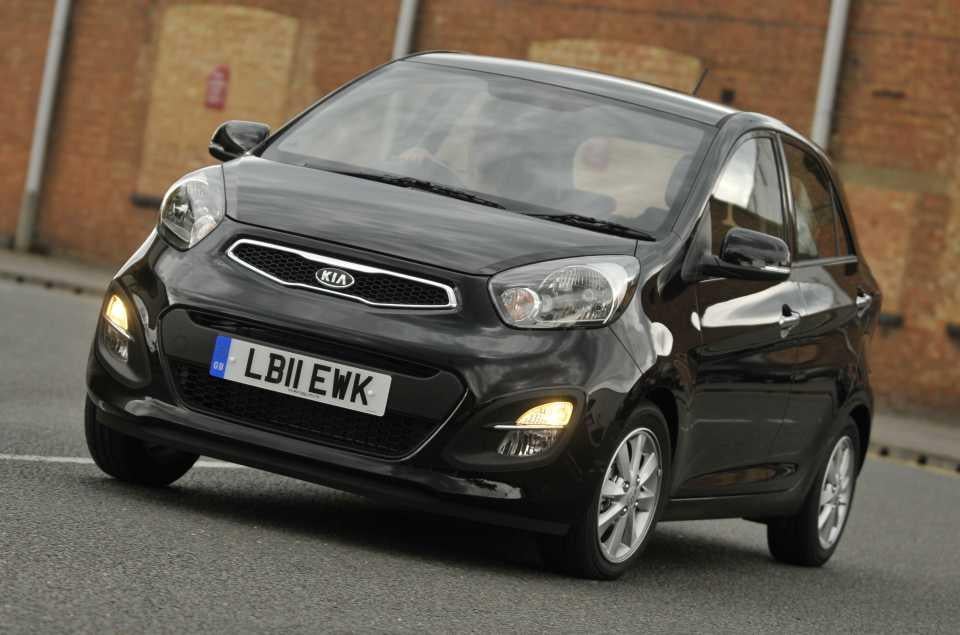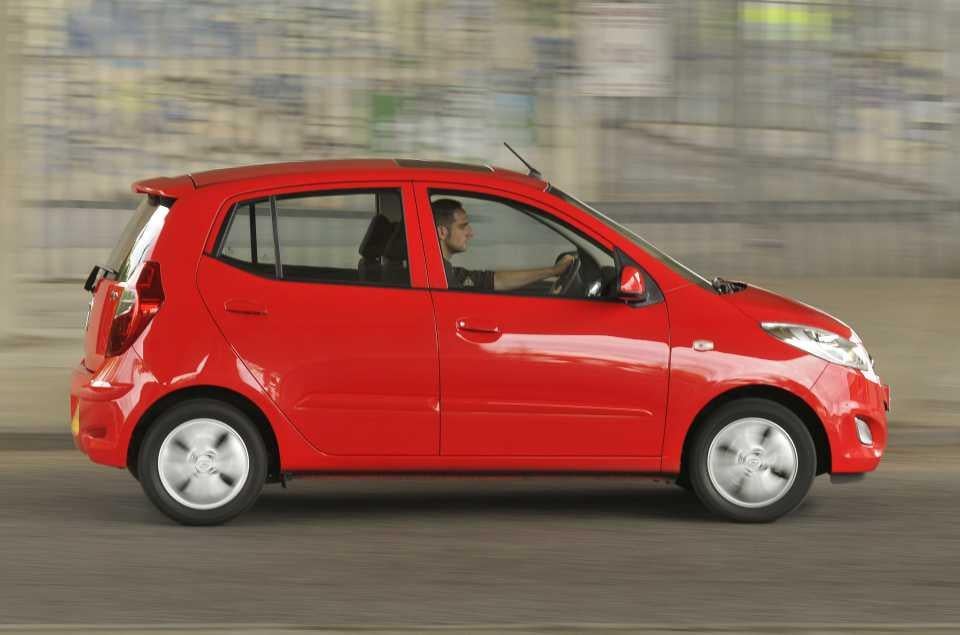Your support helps us to tell the story
From reproductive rights to climate change to Big Tech, The Independent is on the ground when the story is developing. Whether it's investigating the financials of Elon Musk's pro-Trump PAC or producing our latest documentary, 'The A Word', which shines a light on the American women fighting for reproductive rights, we know how important it is to parse out the facts from the messaging.
At such a critical moment in US history, we need reporters on the ground. Your donation allows us to keep sending journalists to speak to both sides of the story.
The Independent is trusted by Americans across the entire political spectrum. And unlike many other quality news outlets, we choose not to lock Americans out of our reporting and analysis with paywalls. We believe quality journalism should be available to everyone, paid for by those who can afford it.
Your support makes all the difference.It’s fair to say the Fiat 500 city car has been an enormous hit in the UK. Despite being launched back in 2008, its popularity shows little signs of waning even today – and because Fiat has evolved it rather than revolutionised it, used models can be just as appealing as all-new ones. Factor in prices starting from £4000 and you’ve all the makings of a city car star.
But other brands think there’s more to city car success than stylish looks. Take the Hyundai i10: it has an immediate advantage over the Fiat in offering five doors rather than three. It costs even less, too – and if the Hyundai is just a bit too utilitarian-looking for you, the stylish Kia Picanto aims to offer the best of both worlds. Which, then is best? Time to find out.

In their natural environment, the Kia initially appeals. It’s compact and has a turning circle almost a match for a black cab. Pity about the grabby brakes and snatchy clutch, which would soon have black cab passengers denying the driver a tip. It has an unsettled ride too, and handling lacks both grip and feedback.
Its sister car, the Hyundai i10, is more impressive. The ride is smoother, as is actually driving it, and it has easy steering and a great gearbox. Only on motorways and twistier roads does it begin to feel out of its depth. Not so the Fiat, which takes motorways in its stride and has loads of grip in corners. But it too suffers from a fidgety ride and over-light steering.
The Fiat’s engine is strong, and the Hyundai’s is even better. You really have to thrash the Picanto though, which has a knock-on effect on refinement – excessive wind noise doesn’t help here, either. Mind you, none of them are particularly refined, with the i10’s engine droning at speed and the Fiat emitting too much road noise even in town.

The Hyundai and Kia are obviously more practical inside. Dexterity is required to get into the back of the Fiat, and those in the front will be frustrated their seats don’t return to their original position. It’s cramped in the back of the 500 too; the others are surprisingly roomy, although all three have decent-sized boots.
Up front, it’s easy to forgive the Fiat a lot because its dashboard is so charming. Painted to match the colour of the car, it’s delightfully retro-look, although the quality of some plastics is perhaps a bit too old school for our liking. The charming instruments are cluttered and hard to read, while some of the other controls are also fiddly.
The Hyundai is much more drab, and looks cheap. It’s well-built, but it’s too drab and lacking in flair to be particularly appealing. The Kia shows how it should be done, with quality switchgear, a classy appearance and great attention to detail. The Picanto has the best seats too: they’re too high in the i10 and travel is limited in the 500. None of them has a steering wheel that adjusts for reach, either.
You’ll forgive the Hyundai a bit more readily for this, because it’s clearly the cheapest and thus remarkably good value. The Fiat is more expensive to buy, but again, it’s easier to forgive, because it’s so stylish. The used prices of the Kia are harder to swallow. At least the Picanto will be cheap to run, with much more impressive fuel economy than the Fiat, and tax benefits as a result of its low CO2 to boot.
The Kia should be the most reliable, although the Hyundai and even the Fiat aren’t bad here. In terms of servicing, the Fiat may be cheaper, but the best new car warranties are offered by Kia and Hyundai, so they may have been kept in the hands of the official dealer network for longer.
We started this triple test expecting the Kia to offer the best of both worlds, blending the Fiat’s style with the Hyundai’s practicality. Sadly, the reality isn’t good enough, and it’s too expensive when compared to the bargain Hyundai. You’ll be more willing to pay the extra for the 500, because of its style – and more willing to forgive its negatives too.
But the best performer overall is the Hyundai. It’s a genuine bargain to buy and performs better than the other too as well. Engine response is good, it’s an impressive drive both within town and away from it, and the interior is extremely practical. It may not be the most stylish car here, but ultimately, head still wins over heart. At this price, you can’t do better than the Hyundai i10.
Specifications: Hyundai i10 1.2 Active (4 stars)
Engine size 1.2-litre petrol
List price when new £8795
Price today £3000
Power 84bhp
Torque 89lb ft
0-60mph 11.0sec
Top speed 110mph
Fuel economy 61.4mpg (Official average)
CO2 emissions 108g/km
Specifications: Fiat 500 1.2 Pop S/S (3 stars)
Engine size 1.2-litre petrol
List price when new £9665
Price today £4000
Power 68bhp
Torque 75lb ft
0-60mph 12.5sec
Top speed 101mph
Fuel economy 58.9mpg (Official average)
CO2 emissions 113g/km
Specifications: Kia Picanto 1.0 2 (3 stars)
Engine size 1.0-litre petrol
List price when new £9595
Price today £4000
Power 68bhp
Torque 70lb ft
0-60mph 14.9sec
Top speed 100mph
Fuel economy 67.3mpg (Official average)
CO2 emissions 99g/km
Price today is based on a 2011 model with average mileage and full service history, correct at time of writing.
Rob Adams is a writer for WhatCar.

Join our commenting forum
Join thought-provoking conversations, follow other Independent readers and see their replies
Comments